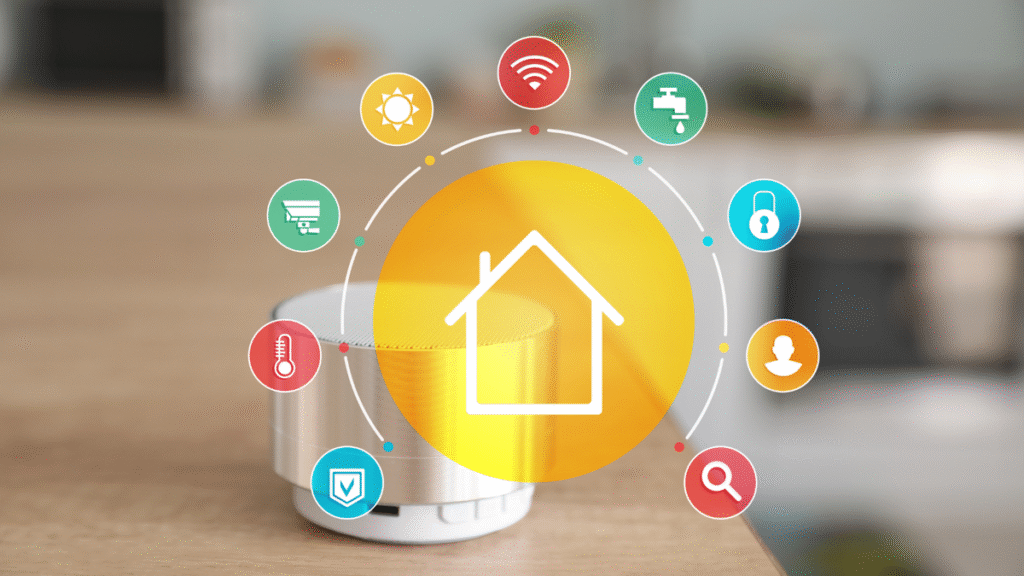From voice assistants listening to private conversations to smart cameras storing footage in the cloud, our homes are packed with devices that record, track, and analyze our behavior—often without full transparency.
If you own a smart speaker, security camera, thermostat, or even a smart TV, you may be sharing more personal data than you realize.
This article exposes how smart devices spy on you, who has access to your data, and how to protect your privacy in an increasingly connected world.
1. How Your Smart Home Devices Spy on You
🔍 Always-On Microphones
-
Amazon Echo, Google Nest, and Apple HomePod constantly listen for wake words (“Alexa,” “Hey Google,” “Hey Siri”).
-
Recordings are often saved and reviewed by humans for “improving AI.” (Amazon admitted this in 2019.)
-
Accidental activations mean private conversations could be recorded without your knowledge.
📸 Smart Cameras & Doorbells
-
Ring, Nest, and Arlo cameras upload footage to cloud servers.
-
Police and third parties can request access (Ring has partnered with over 2,000 police departments).
-
Facial recognition may be used to track visitors.
📺 Smart TVs That Track Your Viewing Habits
-
Samsung, LG, and Roku TVs collect data on what you watch.
-
Voice commands and even private conversations have been recorded by TVs.
-
Advertisers use this data to target you with personalized ads.
🌡️ Smart Thermostats & Appliances
-
Nest and Ecobee track when you’re home, your daily routines, and energy usage.
-
Smart fridges (like Samsung’s Family Hub) may scan food items and send data to advertisers.
🔐 Smart Locks & Home Security Systems
-
August, Yale, and SimpliSafe log every time you lock/unlock your door.
-
Hackers can exploit vulnerabilities to break into smart locks.
2. Who Has Access to Your Data?
| Company | What They Collect | Who They Share It With |
|---|---|---|
| Amazon (Alexa, Ring) | Voice recordings, camera footage | Police, advertisers, third-party apps |
| Google (Nest, Assistant) | Search history, voice commands, home routines | Ad networks, data brokers |
| Apple (HomeKit, Siri) | Device usage, voice queries (anonymized) | Limited sharing (but still collects data) |
| Samsung (SmartThings, TVs) | Viewing habits, appliance usage | Advertisers, third-party partners |
| Facebook (Portal, Meta) | Video calls, facial recognition | Ad targeting, Meta’s data ecosystem |
Shocking Fact: In 2020, a Google Nest microphone was found to be secretly active in a security system—despite not being advertised as having one.
3. Real-Life Cases of Smart Home Spying
Amazon Employees Listening to Private Conversations
-
Reported by Bloomberg (2019): Amazon workers transcribed and shared private Alexa recordings, including intimate moments.
-
Amazon’s response: “We only annotate a small fraction of recordings.”
Ring Cameras Hacked to Spy on Families
-
Multiple incidents where hackers accessed Ring cameras, speaking to children or watching families sleep.
-
Cause: Weak passwords & lack of two-factor authentication.
Smart TV Manufacturers Selling Viewing Data
-
Vizio settled a lawsuit for $2.2 million after tracking users without consent.
-
Samsung’s privacy policy warned: “Don’t discuss personal info in front of your TV.”
4. How to Stop Your Smart Home from Spying on You
🔒 Step 1: Disable Always-Listening Features
-
Alexa: Go to Settings > Alexa Privacy > Manage Your Alexa Data → Disable “Use of Voice Recordings.”
-
Google Assistant: Open the Google Home app > Privacy > Audio Activity → Pause saving recordings.
-
Siri: Go to Settings > Siri & Search > Siri History → Delete recordings.
📵 Step 2: Secure Your Smart Cameras
-
Enable two-factor authentication (Ring, Nest, Arlo).
-
Disable cloud storage and use local storage (SD cards/NAS).
-
Cover the camera when not in use.
📺 Step 3: Stop Smart TVs from Tracking You
-
Disable ACR (Automatic Content Recognition):
-
Samsung: Settings > Support > Terms & Policies > Disable “Viewing Information.”
-
LG: Settings > All Settings > General > About This TV > Disable “Live Plus.”
-
Roku: Settings > Privacy > Smart TV Experience > Disable “Advertising.”
-
🌐 Step 4: Use a Separate Network for IoT Devices
-
Create a guest Wi-Fi network for smart devices to isolate them from your main network.
-
Use a VPN router to encrypt traffic.
🗑️ Step 5: Regularly Delete Recorded Data
-
Amazon Alexa: Delete voice recordings monthly.
-
Google Home: Clear activity logs.
-
Ring/Nest: Manually delete old footage.
5. Are There Any Safe Smart Devices?
✅ Privacy-Focused Alternatives
-
Voice Assistants: Mycroft AI (open-source, no cloud spying).
-
Smart Cameras: Eufy (local storage, no cloud required).
-
Smart Speakers: Apple HomePod (more privacy-focused than Alexa/Google).
❌ Devices to Avoid If You Value Privacy
-
Facebook Portal (Meta collects facial & voice data).
-
Cheap Chinese-brand cameras (potential backdoors).
-
Smart TVs with aggressive ad tracking (TCL, Vizio).
6. The Future of Smart Home Surveillance
-
More AI-powered tracking (predicting behavior, emotion detection).
-
Government & law enforcement access (facial recognition databases).
-
Insurance companies using smart data (raising rates if you stay up late or skip workouts).
Question: Are we trading convenience for a loss of privacy?
Conclusion: Take Back Control of Your Privacy
Your smart home can be convenient—but not at the cost of being constantly monitored. By disabling unnecessary tracking, securing devices, and choosing privacy-first brands, you can enjoy smart tech without the spying.
